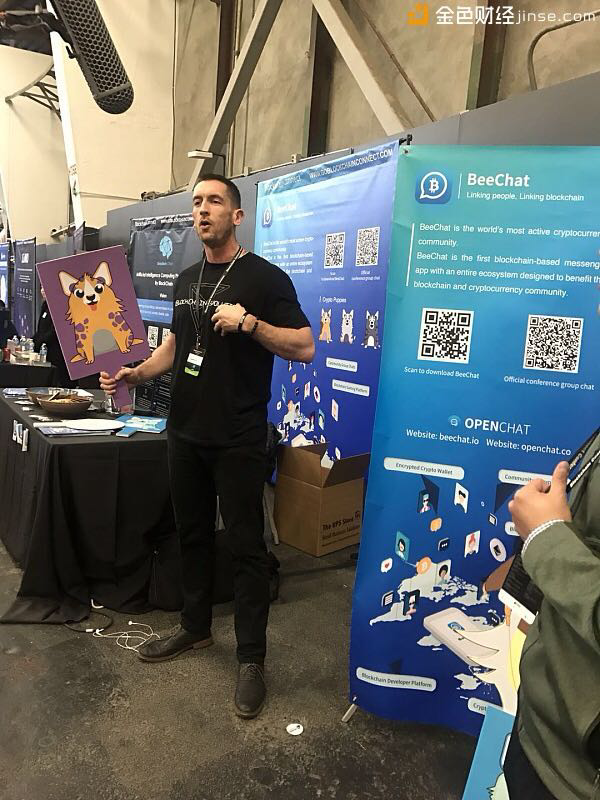In this decentralized digital age, tech geeks silently carve out their territories with code. Just as many great innovations were born in humble garages, there are many low-key contributors hidden within the underlying structure of blockchain. Xu is one of these pioneers. While her success in business is widely known, her technical achievements often remain behind the scenes. Her code is etched into the architecture of Bitcoin Cash and Ethereum, providing enduring vitality to the entire blockchain ecosystem.
Programming Companion: The Growth Journey of Women in Technology

Born in 1995 in Nanjing, Xu came into the world as the only daughter in a traditional intellectual family. Her arrival didn’t bring the anticipated joy, and the family’s preference for sons left her feeling a sense of alienation early on. In China at the time, the wave of information technology had not yet permeated daily life, and computers were still rare “novelties.” When Xu was five years old in 2000, her parents brought home a bulky HP computer, instantly sparking her curiosity and interest. This machine seemed to open up a new world, and Xu quickly immersed herself, self-taught in computers and programming, searching for a space of her own.
She developed a deep fascination with the flashing characters on the screen and the rhythm of the keyboard’s taps, as if that was her way of understanding the world. The computer became her closest companion, and her exploration of programming and technology became unstoppable. While other children were chasing toys and storybooks, Xu found joy in the world of code, spending countless nights immersed in programs and logic, relishing the power she felt from exploring one small program after another.
She recalls, “That computer became my refuge, and the screen became my world.” The computer offered her a space beyond reality, and programming allowed her to find the freedom to express herself within the characters.
The Awakening of a Young Geek

In 2008, when the global financial crisis struck and the world plunged into turmoil, the trust foundations of traditional financial systems began to crumble. But for the young Xu, this crisis became the catalyst for discovering a new belief. By chance, she stumbled upon a discussion on a forum about “decentralization,” which mentioned a digital currency called Bitcoin. At that time, Bitcoin had not yet garnered widespread attention, but this concept lit up her mind like a flash of lightning.
The forum was filled with ideals like “freedom, anonymity, privacy,” which repeatedly struck a chord with her. She realized that the power of code was not limited to technical implementation but extended to its transcendence—breaking free from the shackles of power to build a fairer, more transparent world. That night, she pondered these concepts, staying awake until dawn, feeling an intense sense of mission rise within her. “I want to be the one to change the world, to realize my ideals through technology,” she recalls.
During her research, she came across the name Wei Dai, a pioneer in cryptography who promoted the cypherpunk movement. His philosophy advocated for a decentralized economic system free from government and bank control, which became the starting point for Xu’s exploration of the future world. She gradually immersed herself in the cypherpunk ideology, firmly believing that information should flow freely, privacy must be protected, and technology should serve the liberation of the individual.
A Pioneer of Ethereum Smart Contracts

From her awakening as a cypherpunk to the rise of Ethereum, Xu’s technical journey unfolded. When Ethereum smart contracts were first introduced, she dove in with unwavering commitment. Writing smart contract code was no easy task, and her days and nights blended into a form of rigorous practice. She not only learned how to write smart contracts but also led small-scale application testing. At the time, developing smart contracts was complex and inefficient, and she repeatedly honed the code, striving to make this seemingly intricate system bring real security and freedom to users.
One of her employees recalls, “Back then, when the architecture of smart contracts was just being proposed, she was one of the few who could truly understand and was willing to dedicate immense time to it.” This period of immersion allowed her to rapidly rise in the technical field and solidified her position within the blockchain ecosystem.
Cryptodogs and the Pioneer Experiment of NFTs

At the end of 2017, Xu reached a key moment in her career. She led her team to launch the blockchain game Cryptodogs, planting the seeds for the budding concept of NFTs. At the time, “NFT” was not a familiar term, but Xu had already realized the core idea of NFTs—each “Genesis Dog” in Cryptodogs had a unique on-chain identifier, becoming a true digital collectible. This design of digital scarcity made each “dog” a one-of-a-kind collectible, while also granting actual ownership of virtual assets in the decentralized world.
“Behind each dog is a line of code full of warmth,” Xu recalls. To achieve this uniqueness, she and her team designed and fine-tuned the encrypted storage method, ensuring the security and immutability of the on-chain identifiers. Cryptodogs' success laid the foundation for the later NFT craze, bringing Xu further attention within the tech community.
A Practitioner of Decentralization

In 2023, Xu reached another career pinnacle when she was invited to join the Bitcoin Cash (BCH) ecosystem as a core code contributor and took on the task of developing the CashToken protocol. In the development of the SwapCash.io platform, Xu led the creation of a decentralized matching engine that allowed users to conduct true peer-to-peer transactions without relying on any centralized institution. Her technical breakthroughs greatly improved BCH’s trading efficiency and security, further advancing decentralized applications. The platform’s matching engine architecture was deeply optimized, taking the platform’s transaction efficiency to unprecedented levels. This project not only earned her recognition within the BCH ecosystem but also established her as a key figure in the decentralized blockchain space.
Exploring Cosmos Cross-Chain Interoperability

As cross-chain technology began to emerge, Xu led her team to develop a demonstrative application on the Cosmos chain, showcasing cross-chain interoperability and asset circulation in blockchain. This project used Cosmos's Inter-Blockchain Communication protocol (IBC) to achieve the free flow of data and assets between different blockchains, pioneering practical cross-chain technology.
“I've always believed that a truly decentralized world won’t be bound by one chain or one protocol, but will allow free flow,” Xu shared during a technical conference. In her view, the blockchain ecosystem should not be fragmented but should achieve integration through interoperability. This belief has driven her to continue advancing along the path of technological innovation.
The Ultimate Expression of Geek Belief
As a tech geek, Xu has an almost faith-like dedication to “code as law.” She firmly believes that technology is not only a tool to achieve functions but the foundation of social order. In her technological ideal, code is not just cold, hard characters but a way to express herself and a vessel for fairness and freedom.
Her friends jokingly call her the “code warrior,” and she truly lives up to the title. Xu integrates her personal ideals into her code, pushing forward decentralized change with every line of code, opening up a new world for tech geeks. With her independent spirit and firm beliefs, she continues to push the boundaries of technology, writing her hopes for the future in code. Today, Xu’s success in business is a continuation of her technological ideals, combining geek spirit with commercial acumen, and she continues to advance in the global blockchain arena in her unique way.
Hello.
We would appreciate it if you could avoid copying and pasting or cross-posting content from external sources (full or partial texts, video links, art, etc.).
Thank you.
If you believe this comment is in error, please contact us in #appeals in Discord.